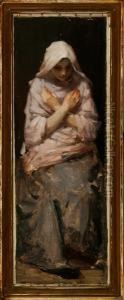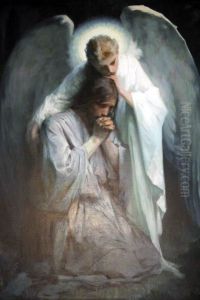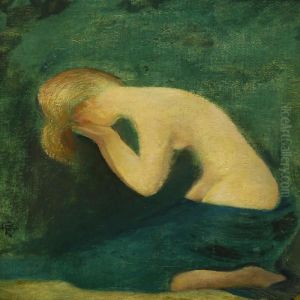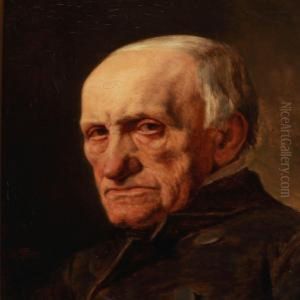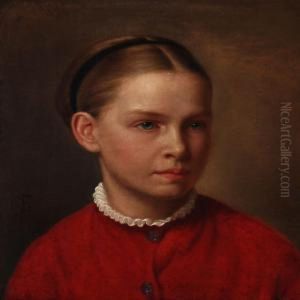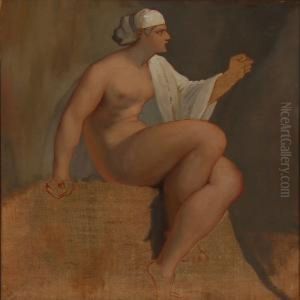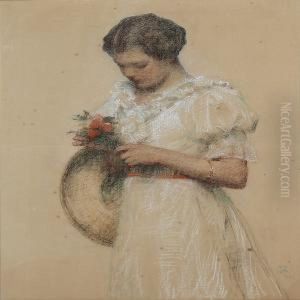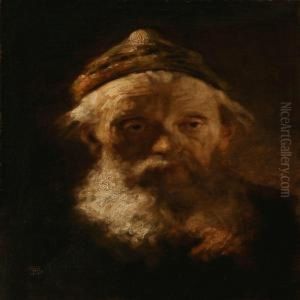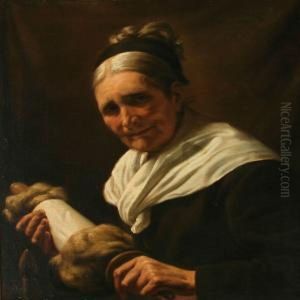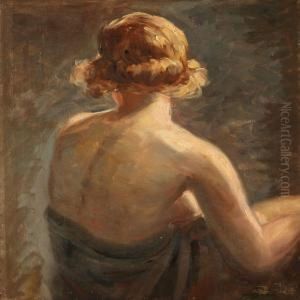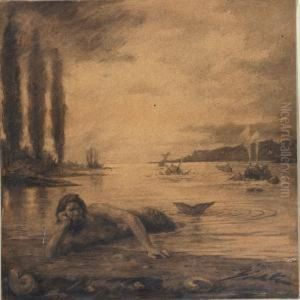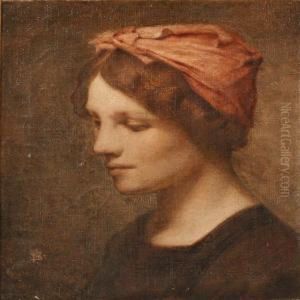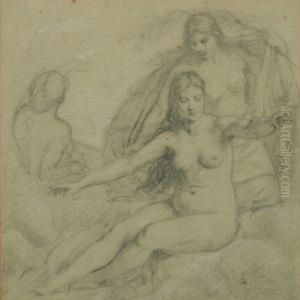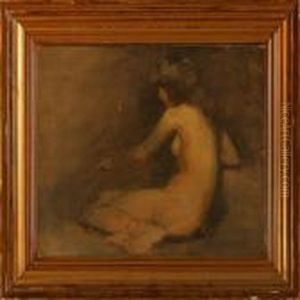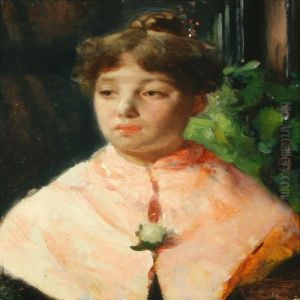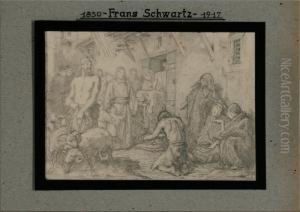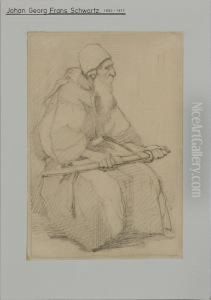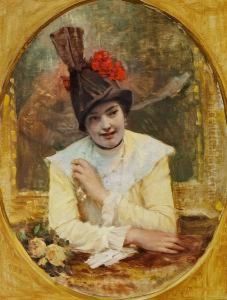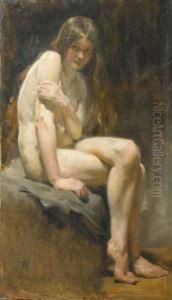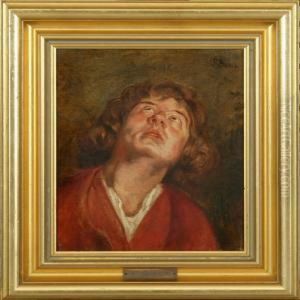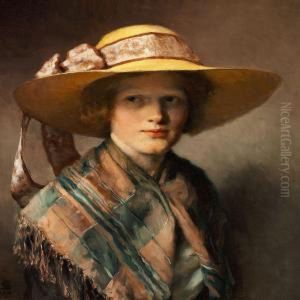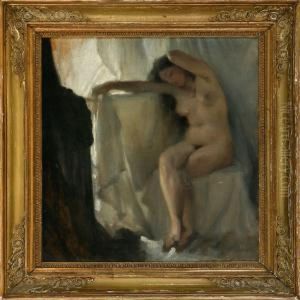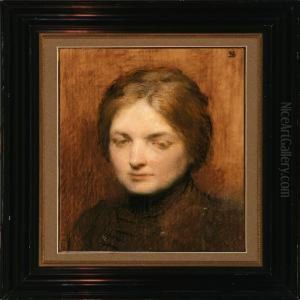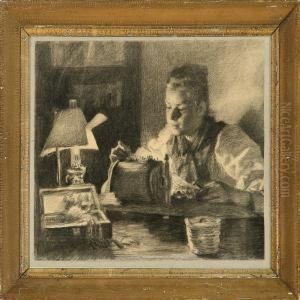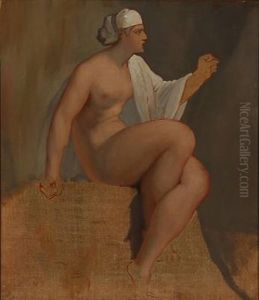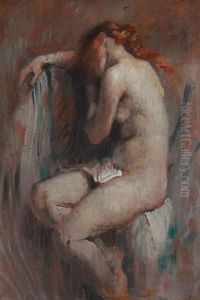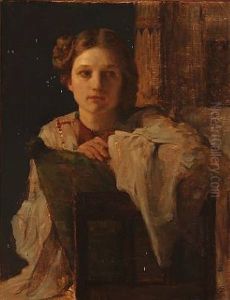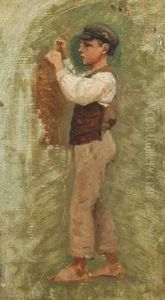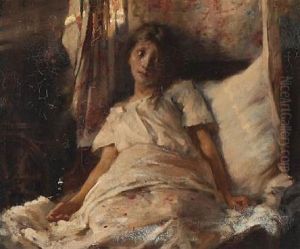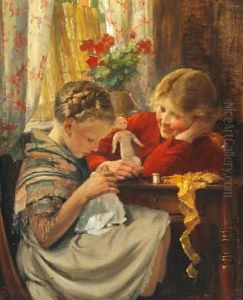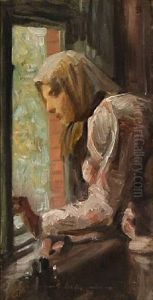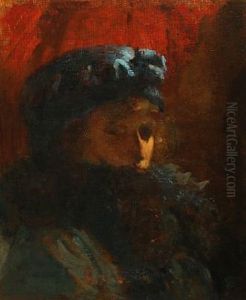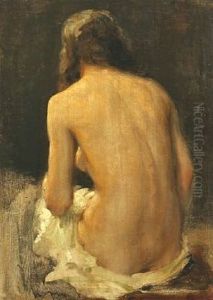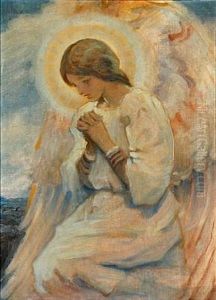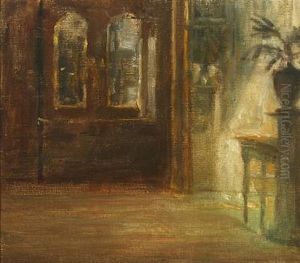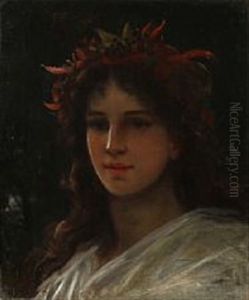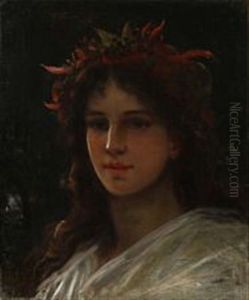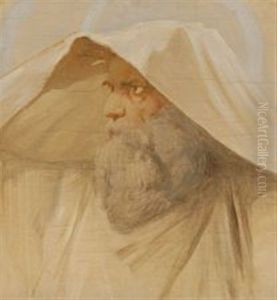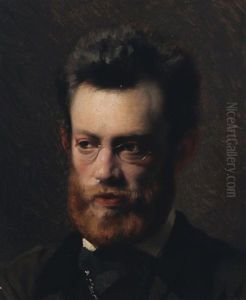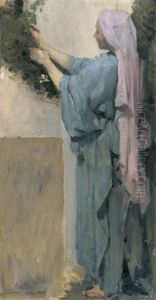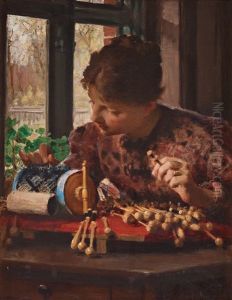Frans Schwartz Paintings
Frans Schwartz was a Danish painter born on 11 August 1850 in Copenhagen, Denmark. He was known for his portraits, religious paintings, and historical scenes. Schwartz studied at the Royal Danish Academy of Fine Arts from 1869 to 1870 and continued his studies in the studio of genre painter Wilhelm Marstrand. He was influenced by the aesthetic movement and the French realism and naturalism that were prominent during his time.
In the early years of his career, Schwartz traveled extensively, which influenced his artistic style. His early works were characterized by a realistic portrayal of everyday life, but as his style evolved, he became known for his dramatic and emotional representations, often with a strong narrative element. One of his significant works is 'Askese' (Asceticism), which reflects his interest in the psychological states and the inner life of his subjects.
Schwartz became a central figure in the Danish art scene of the late 19th and early 20th centuries. He was a member of the Royal Academy Council and served as a professor at the Royal Danish Academy of Fine Arts. His contribution to Danish art was recognized with the Order of the Dannebrog, a prestigious honor awarded for meritorious civil and military service.
During his lifetime, Schwartz achieved considerable success and was commissioned to create works for public and private collections. Among his notable commissions was a series of paintings for Frederiksborg Castle, depicting significant events in Danish history.
Frans Schwartz passed away on 9 October 1917 in Copenhagen. His legacy includes a wide range of works that capture the cultural and historical essence of Denmark during his time. He is remembered as an artist who combined technical skill with a deep understanding of human emotion and narrative storytelling in his paintings.
